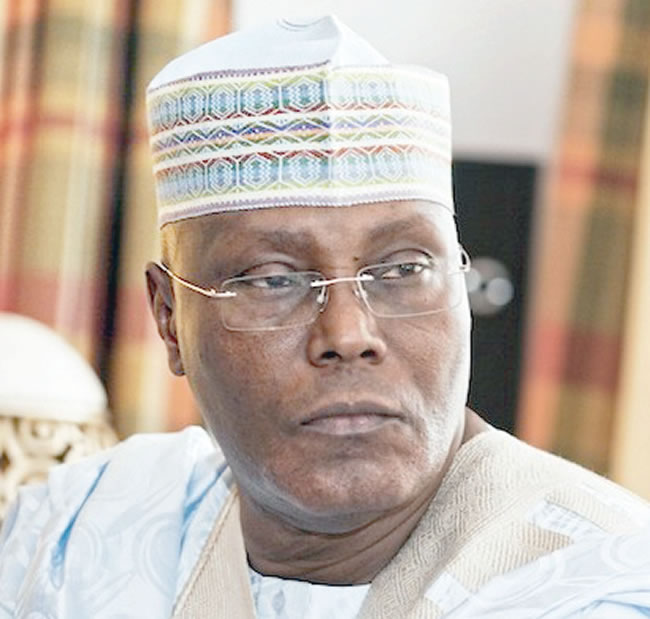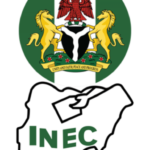In this piece, LEON USIGBE analyses the chances of the presidential candidate of the Peoples Democratic Party (PDP), Atiku Abubakar, in this weekend’s election.
Former vice-president and presidential candidate of the Peoples Democratic Party (PDP), Atiku Abubakar, will this weekend, realize his long-term ambition to be president or his dream will go up in smoke. Even though he has come a long way, he has never been more confident of laying his hands on the plump prize like he is now, going into Saturday’s election despite the odds.
He started this journey in 1993 in the Social Democratic Party (SDP) where the late Moshood Kashimawo Abiola prevailed over him for the presidential ticket. Then, the story was told about how, backed by powerful state governors who were bent on wresting the presidential nomination from President Olusegun Obasanjo, he famously got the incumbent president to go down on his knees in 2003 over the PDP ticket for that year’s election. All said and done, Atiku let Obasanjo be; they were re-elected as president and vice president, but the scheming never stopped.
His vaunted ambition pushed him out from the PDP in 2007 to become the presidential standard bearer of the Action Congress (AC). However, he could only come third to the eventual winner of the poll, late President Umaru Musa Yar’Adua of the PDP and first runner-up, Major General Muhammadu Buhari of the All Nigerian Peoples Congress (ANPP). Atiku retraced his steps to the PDP and in 2011, contested the presidential ticket with then Vice President Goodluck Jonathan and again lost to the eventual winner of the presidential election.
Ahead of the 2015 election, the former vice-president, who was elected governor of Adamawa State in 1999 before being picked by Obasanjo to be his running mate same year, joined some PDP governors and prominent party personalities in a dramatic exit from the ruling party in 2014 to the newly formed alliance, the All Progressives Congress (APC). Here, he contended with Buhari in the presidential primary of the party and again, lost to him. Atiku returned to the PDP in 2017 and managed to clinch its presidential ticket for the 2019 election. He lost the contest to President Buhari of the APC.
The PDP flag bearer in this Saturday’s election emerged in controversial circumstances, which have continued to threaten to impact his chances in the poll. The Adamawa State-born politician stubbornly failed to yield to his party’s cardinal rule of power rotation that ought to have returned the presidential ticket to the South. Just when he appeared to have weathered the storm from that, he committed another mortal sin, at least, in the eye of Governor Nyesom Wike of River State, who he beat for the ticket but passed over in the selection of running mate. Wike and his group of five governors (G5), have consequently, been the most vociferous opponents of Atiku’s election this Saturday on the grounds that his candidacy falls short of the party’s principles of equity, fairness and justice.
Atiku has done all that is within his powers to please the group except to satisfy its key demand of the removal of PDP national chairman, IyorchIa Ayu, from office so that a Southerner can assume the post to sort of balance the PDP’s organogram. All the five governors including Seyi Makinde (Oyo), Ifeanyi Uguanyi (Enugu), Okezie Ikpeazu (Abia) and Sam Ortom (Benue), resolute in their campaign against the PDP candidate, have now pitched their tents either with the candidate of the ruling APC, Bola Tinubu, or that of the organic Labour Party (LP) standard bearer, Peter Obi, who himself, dumped the PDP for much the same reason the G5 advances.
Pundits have argued that if Atiku did not have the twin problems of the G5 and Obi, the 2023 presidential election would have been a walkover for him, contesting against an APC Muslim-Muslim ticket with doubts over the health status and cognitive ability of its presidential candidate. This is so because Obi draws his main support from the traditional base of the PDP, which had been virtually impregnable to the APC. However, observers also say that Atiku, while still retaining some measure of the support that he enjoyed across the South, as the only Muslim Fulani in the presidential race, has been able to make up for the ground he may have lost as a result of the lack of the support from the G5 and in the traditional PDP base. He is perceived to have been able to rally, behind his ambition, the core North that had been Buhari’s fortress in the last three of four election circles since the president is no longer on the ballot.
After a successful presidential campaign, Atiku will also be counting on President Buhari’s determination to deliver a credible election before his exit from office, which should guarantee a level playing field devoid of the usual and undue favour of the ruling party. He also sees an opportunity in the fact that this exercise may also be the first presidential election in recent times that will not be heavily influenced by money as Buhari, through his administration’s cashless policy, has made sure that much money is moved away from the possession of politicians, or their warehouses of old naira notes meant for vote buying have been rendered redundant through naira redesign.
The PDP candidate is confident that all the odds are in his favour to be elected Nigeria’s next president this weekend. But he may also realise that this is possibly his last opportunity. If he fails, his political life may come to a screeching halt because at 76 years old, age is no longer on his side.
READ ALSO FROM NIGERIAN TRIBUNE






